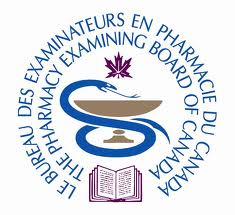pharmacy technician
Definition
Pharmacy technicians assist licensed pharmacists in preparing medications for patients.
Description
Pharmacy technicians, who may also be called pharmacy assistants or pharmacy aides, assist licensed pharmacists in preparing medication for patients. Depending on the work setting and the laws of the individual state, this may involve a number of different tasks.
The primary responsibility of most technicians is to fill orders or prescriptions under the direction and supervision of a pharmacist.
The extent of this involvement is often subject to state law, which limits certain activities to performance by a licensed pharmacist. The following discussion will vary with the specific location.
The extent of this involvement is often subject to state law, which limits certain activities to performance by a licensed pharmacist. The following discussion will vary with the specific location.
When a medication order or prescription is received, it is reviewed by the pharmacist. This review assures that the order is properly written, and is for a safe and effective dose considering the patient's medical condition and the other drugs being taken. Once the order has been reviewed, the technician locates the medication, counts the required number of doses, prepares a label, and performs other required tasks such as pricing the prescription. This work is subject to review by the pharmacist, who is also responsible for giving the medication to the
patient and for providing information about the proper way in which the medication should be taken.
Preparing medication for dispensing may take varying forms, depending on the work setting. In some hospitals, technicians, following written protocols, prepare injections. This requires familiarity with infection control procedures and specialized machinery. Extreme care in measuring and technical proficiency in the use of equipment are also required. Technicians may also prepare ointments, solutions, or fill capsules.
Technicians may be expected to do stock work. This may require taking inventories of drugs, checking inventories for expiration dates, preparing orders, and checking in deliveries.
Technicians may be responsible for maintaining patient medication profiles. These are records of a patient's prescriptions or drug orders, and are used by the pharmacist to review all the drugs a patient is taking. After the order has been reviewed, the technician may transcribe the information onto the profile, either by hand or using a computer. This task requires familiarity with drugs names and doses, as well as knowledge of common medical abbreviations and terminology. The technician must be extremely diligent and precise.
Technicians commonly prepare insurance claim forms. This requires the same familiarity with terminology as preparing medication profiles, plus familiarity with insurance claims procedures.
Technicians routinely clean and maintain equipment, including computers and dispensing machinery. Because the cleaning process prevents medication from becoming contaminated by other drugs, this task requires extreme thoroughness.
In some work locations, the technician may be expected to serve as a cashier. This requires knowledge of cash register operation and additional diligence.
Work settings
Pharmacy technicians work in a pharmacy. Seventy percent work in retail pharmacies, either independent stores or those that are part of chains. The stores may be drug stores or supermarkets that contain a pharmacy. Most other pharmacy technicians work in hospitals, although a small percentage may find employment with wholesale pharmacies, clinics, or in other settings.
Pharmacy technicians normally work as part of a team, under the direction of one licensed pharmacist, with another technician or other unlicensed person. Most states limit the ratio of technicians or other unlicensed personnel who can be supervised by a single pharmacist. The most common ratio is two unlicensed people to one pharmacist, but this may vary. Other possible team members include cashiers, pharmacy interns, graduates of a college of pharmacy who have not yet been licensed, and pharmacy aides, who may do some of the stock and inventory work but do not prepare medication orders.
Hours are variable, and may include evenings, nights, week-ends, and holidays.
The physical work-load depends on circumstances, and may be very light, or may require heavy lifting.
Education and training
Training varies by state, with many states having no requirements for pharmacy technician training. California requires a formal 240-hour training program with at least 120 hours devoted to lecture, rather than onthe-job training, and a letter certifying completion of the program. Louisiana requires that all pharmacy technicians pass an examination given by the State, but does not specify how training is to be provided.
Some technical and community colleges offer courses leading to a career as a pharmacy technician, and in other places, labor unions have developed educational programs for their members. A typical program, such as the one described by the Indiana State Board of Pharmacy "includes medical terminology specific to the pharmacy, reading and interpreting prescriptions and defining drugs by brand name. Students receive a pharmacology overview and learn dosage calculations, I.V. flow rates, drug compounding and dose conversions. Dispensing of prescriptions, inventory control, billing and reimbursement also are covered."
A number of on-line programs and books are also available for technician training.
Although there are no formal education requirements, the Pharmacy Technician Certification Board (PTCB) administers a national certification examination. Admission to the certification examination requires a high school diploma or equivalent. Certification is not required for employment, but many employers prefer to hire certified technicians, and some states may require certification for employment in the future. Maintenance of certification requires participation in 10 hours each year of continuing education, at least one hour of which must be in the area of pharmacy law.
myLot User Profile


Comments